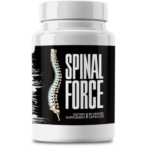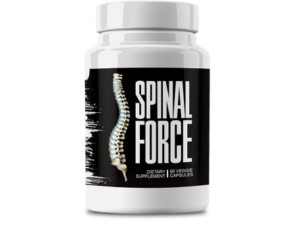This Village-Made Chinese Pain Reliever Eliminates Back And Joint Pain!
Stop the Pain: Breakthrough Treatment for Severe Osteoarthritis in Hands

Stop the Pain: Breakthrough Treatments for Severe Hand Osteoarthritis
If your hands ache every time you open a jar, type an email, or even hold your morning coffee, you might be dealing with severe hand osteoarthritis. This wear-and-tear joint condition can turn simple tasks into painful challenges—but there's hope. Modern treatments have come a long way in managing pain and restoring mobility. In this guide, we'll walk through everything you need to know about severe osteoarthritis in hands, from why it happens to the latest treatments that actually work.
What Exactly Is Happening to Your Hands?
Osteoarthritis isn't just "getting older"—it's your joints literally wearing down. Here's what's going on beneath your skin.
The Mechanics of Hand Osteoarthritis
Imagine the smooth cartilage in your joints as shock absorbers in a car. Over time, they wear thin, leaving bone to grind against bone. This isn't just uncomfortable—it leads to:
- That familiar deep ache in your thumb base (where it meets your wrist)
- Stiff, swollen finger joints that make a fist feel impossible
- Those odd little bumps (Heberden's nodes) on your fingertips
Why Your Hands? Common Culprits
While aging plays a role, other factors speed up the process:
- Your family history: If your mom had knobby arthritis fingers, you might too
- Your job or hobbies: Years of typing, knitting, or using tools take their toll
- That old injury: Remember when you broke your wrist in college? It matters now
- Extra weight: More pounds mean more inflammation throughout your body
Signs It's More Than Just Morning Stiffness
How do you know when it's time to see a doctor? Watch for:
- Pain that lingers long after you've stopped using your hands
- Stiffness that doesn't ease up within 30 minutes of waking
- Joints that look red, feel warm, or appear misshapen
- Simple tasks like turning a key becoming surprisingly difficult
Why Waiting Makes It Worse
Putting off treatment is like ignoring a check engine light—the longer you wait, the more damage occurs.
The Early Intervention Advantage
Catching osteoarthritis early means you can:
- Slow down cartilage loss before it's gone for good
- Avoid those gnarly finger deformities
- Keep using your hands without constant pain
How Doctors Diagnose Hand Arthritis
Your doctor might use:
- X-rays: Shows how much cartilage has worn away
- MRI: Gives a detailed look at soft tissue damage
- Blood tests: Rules out other types of arthritis
Your Treatment Toolkit: From Basic to Advanced
Today's options go far beyond just popping painkillers. Let's explore what really works.
The First Line of Defense
Start with these conservative approaches:
- NSAIDs: Ibuprofen can help, but don't make it a daily habit
- Topical creams: That capsaicin cream that burns? It actually works
- Hand therapy: Simple exercises can maintain your range of motion
The Game-Changing Treatments
When basics aren't enough, consider:
- Steroid shots: Quick relief, but can't be used too often
- Hyaluronic acid injections: Like oil for your creaky joints
- PRP therapy: Uses your own blood's healing factors
When Surgery Becomes the Best Option
If you're at the point where pain keeps you up at night or you can't use your hands normally, surgery might offer real relief. Options include:
- Joint fusion: Stops pain by making the joint immobile
- Joint replacement: Just like knee replacements, but for your hands
Living Better With Arthritic Hands
Small changes can make a big difference in your daily comfort.
Hand-Saving Hacks
- Use electric can openers and jar openers—your hands will thank you
- Try compression gloves when your joints feel achy
- Choose lightweight utensils and pens with thick grips
Foods That Fight Inflammation
Load up on:
- Salmon and other fatty fish
- Dark leafy greens
- Turmeric (try it in golden milk tea)
Your Burning Questions, Answered
Can You Reverse Hand Arthritis?
While we can't regrow cartilage yet, the right treatment can stop the damage from getting worse and significantly improve your quality of life.
What's the Best Non-Surgical Treatment?
Most people get the best results from combining injections with hand therapy and lifestyle changes.
How Long Until I Feel Better After Surgery?
Plan on about 6 weeks for light activities, with full recovery taking several months.
The Bottom Line
Severe hand osteoarthritis doesn't have to mean giving up the activities you love. With today's treatment options—from simple exercises to advanced regenerative therapies—you can manage pain and maintain your hand function. The key? Don't wait until the damage is severe. If you're noticing persistent hand pain or stiffness, make an appointment with a hand specialist. Your future self will thank you.
Have you found any particular treatments helpful for your hand arthritis? Share your experiences in the comments—your story might help someone else find relief.








